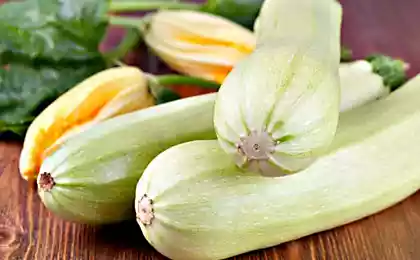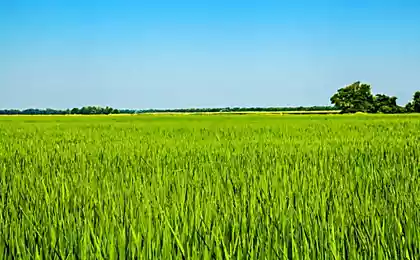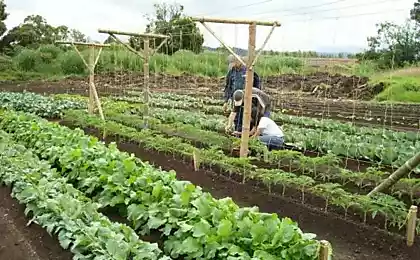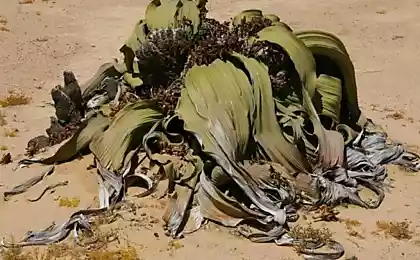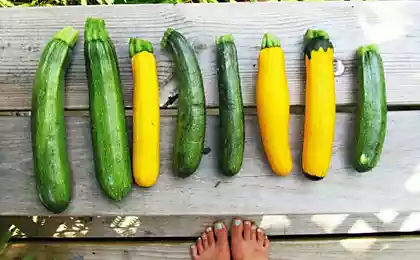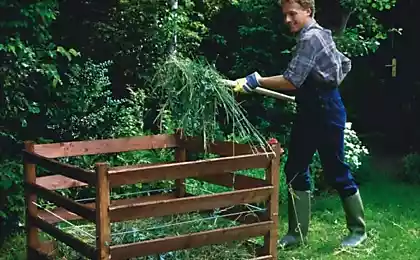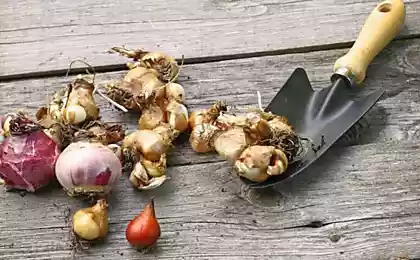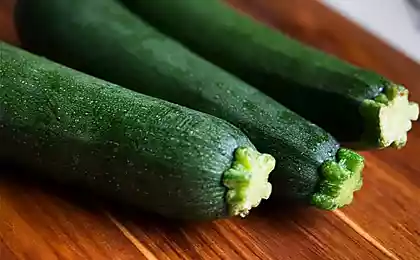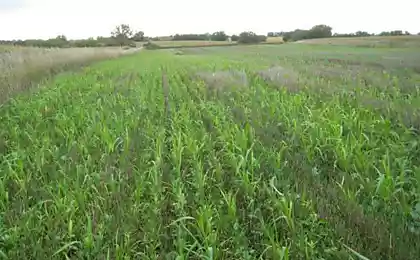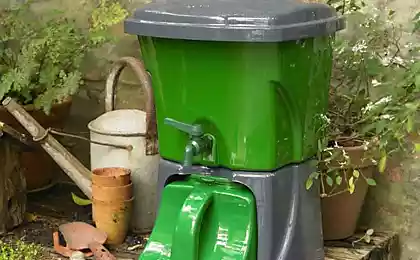208
What to do with zucchini so that they are cheerfully fruiting until the end of September
Zucchini is everyone’s favorite seasonal vegetable, without which no preparation for the winter can do. Especially young crispy zucchini are in demand. In early August, the leaves of zucchini begin to turn yellow, and new ovaries no longer appear. Therefore, it is believed that zucchini will no longer bear fruit. Today we will tell you how to take care of zucchini so that they bear fruit until autumn.
Despite the fact that zucchini is not a capricious culture, they still require attention. There are several rules that will help rejuvenate the culture and accelerate the growth of new ovaries.
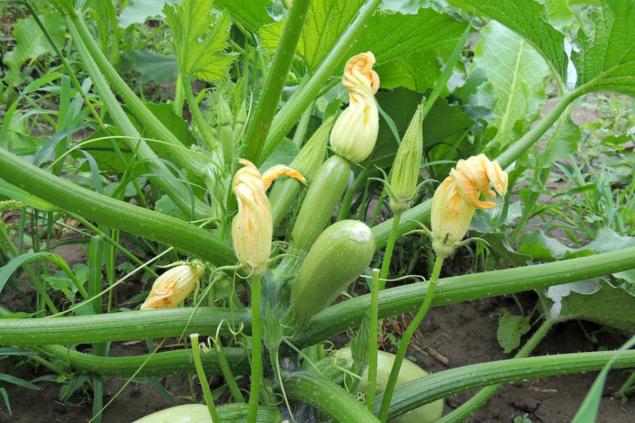
How to care for squash Watering squash Moisture-loving squash must be often and abundantly watered. If zucchini grow in dry soil, each bush needs to water 10 liters of water. Particular attention should be paid to watering in July and August. Zucchini watered with warm water, at a water temperature of not less than 20 degrees.

When watering zucchini, make sure that water does not fall on the leaves. Experienced gardeners recommend stopping watering squash a week before harvest. This will prevent zucchini from rotting.

Starting in July, regularly prune old zucchini leaves that are located near the ground. If these leaves are left, they will not bring any benefit to the fruit, only take away nutrients. Be sure to trim the leaves with garden scissors so as not to damage the plant. Remove 1-2 sheets at a time. That'll be enough to cheer up the zucchini.

Mulching and feeding Mulch helps the plant to bear fruit and grow longer. Especially in hot weather, mulch retains moisture in the soil where the plant is planted. For this, you can use sawdust or hay. Feed zucchini twice a season. Feeding can be bought ready-made in the gardening store or make fertilizer yourself. For example, mullet or peat fertilize the soil of squash, diluting 1 kg of fertilizer in 10 liters of water. For one bush, 1 liter of solution is needed.
268,000
In August, the air temperature, especially at night, is significantly reduced. So that the zucchini do not freeze, install several arcs around them. And on top of them, spunbond. So zucchini will bear fruit until the end of September.

It is necessary to collect ripe zucchini constantly so that old fruits do not appear. If you do not tear old zucchini, they will prevent the appearance of new ovaries and slow down the growth of young fruits.

These simple rules of care for zucchini will provide a caring gardener with a good harvest. At the end of the summer, it is especially important to make sure that zucchini do not freeze. And if you grow zucchini in a greenhouse, then do not forget to regularly ventilate the plants so that they do not rot. How do you take care of your squash beds?
Despite the fact that zucchini is not a capricious culture, they still require attention. There are several rules that will help rejuvenate the culture and accelerate the growth of new ovaries.

How to care for squash Watering squash Moisture-loving squash must be often and abundantly watered. If zucchini grow in dry soil, each bush needs to water 10 liters of water. Particular attention should be paid to watering in July and August. Zucchini watered with warm water, at a water temperature of not less than 20 degrees.

When watering zucchini, make sure that water does not fall on the leaves. Experienced gardeners recommend stopping watering squash a week before harvest. This will prevent zucchini from rotting.

Starting in July, regularly prune old zucchini leaves that are located near the ground. If these leaves are left, they will not bring any benefit to the fruit, only take away nutrients. Be sure to trim the leaves with garden scissors so as not to damage the plant. Remove 1-2 sheets at a time. That'll be enough to cheer up the zucchini.

Mulching and feeding Mulch helps the plant to bear fruit and grow longer. Especially in hot weather, mulch retains moisture in the soil where the plant is planted. For this, you can use sawdust or hay. Feed zucchini twice a season. Feeding can be bought ready-made in the gardening store or make fertilizer yourself. For example, mullet or peat fertilize the soil of squash, diluting 1 kg of fertilizer in 10 liters of water. For one bush, 1 liter of solution is needed.
268,000
In August, the air temperature, especially at night, is significantly reduced. So that the zucchini do not freeze, install several arcs around them. And on top of them, spunbond. So zucchini will bear fruit until the end of September.

It is necessary to collect ripe zucchini constantly so that old fruits do not appear. If you do not tear old zucchini, they will prevent the appearance of new ovaries and slow down the growth of young fruits.

These simple rules of care for zucchini will provide a caring gardener with a good harvest. At the end of the summer, it is especially important to make sure that zucchini do not freeze. And if you grow zucchini in a greenhouse, then do not forget to regularly ventilate the plants so that they do not rot. How do you take care of your squash beds?
What is different from other children who were not taken to kindergarten?
Behavior for which we condemn even close friends, but consider it permissible

